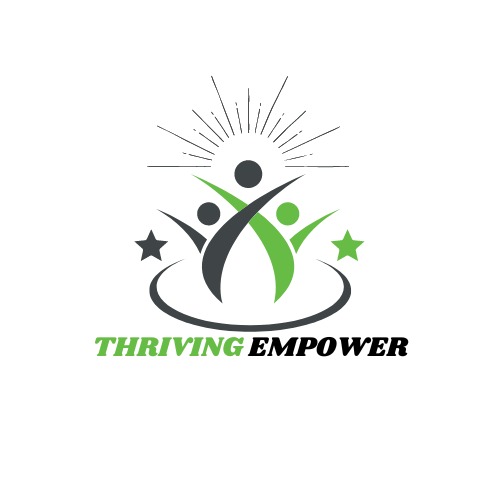Imagine a world where you no longer feel the weight of society’s expectations crushing your spirit, where the mirror reflects not flaws but unique beauty, and where self-doubt is replaced with a deep sense of contentment. Welcome to the transformative journey of self acceptance – a powerful act of embracing oneself unapologetically, flaws and all.
In a society that constantly bombards us with unrealistic standards of perfection, cultivating self-acceptance has become an essential form of rebellion against conformity.
Characteristics of the self acceptance
- Seeing yourself accurately and knowing your strengths and weaknesses is important.
- Embrace all parts of yourself, even the negative ones, and be happy with who you are.
- Accept your values, preferences, feelings, and actions.
- Recognize your accomplishments without being too proud.
- Acknowledge your faults without being too hard on yourself.
- Have a positive attitude towards yourself and see yourself as a whole person
- . Love and respect yourself.

Importance of self-acceptance
Accepting yourself means worrying less about others’ opinions, seeing situations clearly, and not taking harsh criticism to heart. Your self-perception affects your well-being. A 2018 study shows that self-acceptance promotes well-being, leading to better relationships, personal growth, and feeling more capable of handling life’s challenges.
Strategies of self-acceptance
Self-acceptance synonym is Embracing positive self-image, self-perception, and self-esteem
Here are some strategies to follow
stop negative self talk
Stop talking to yourself in a negative way. Many people constantly say bad things about themselves like I’m not good enough or I don’t deserve good things. It’s okay to think these things, but don’t say them out loud.
Words are powerful. If you keep saying negative things, you’ll start to believe them. Show yourself respect and stop the negative self-talk.
Promise yourself that you won’t say anything bad about yourself out loud.

Focus more on your strength rather than weakness
You probably know your weaknesses and insecurities well, but listing your strengths may be harder. You might think you have more weaknesses than strengths, but that’s not true. You have more strengths. Focus on your strengths every day.
Make a list of all your strengths, no matter how small. Pick your top 10 strengths. Keep this list with you, memorize it, and review it daily. Don’t dwell on your weaknesses. Highlight your strengths instead

Forgive yourself and let go
We need to find peace within ourselves before we can have peace in the world. According to the Dalai Lama,
Nobody is perfect, including you. It’s important to forgive yourself and others for past mistakes. You have grown and become wiser over time
. One way to forgive yourself is to write a letter to your past self, expressing forgiveness and acknowledging how those experiences have helped you grow.
Our mistakes and past experiences are valuable lessons that have helped us progress. It’s important to be grateful for our mistakes, as they have shaped who we are today. Shift your perspective on your mistakes, forgive yourself, and move on.

Practice self-acceptance
It’s hard to accept yourself if you’re with people who don’t fully accept you. Stop being with those who make you feel bad and spend time with those who make you feel good.
It’s important because when we’re not happy with ourselves, being with the right people can remind us how great we are.
Surround yourself with those who support you instead of those who bring you down. Show yourself love and respect by removing toxic people from your life.
Work on your personal improvement
Self-acceptance means being okay with yourself but also working on improving. Focus on personal growth by setting goals and identifying areas to improve.
Take small steps daily, like reading self-help articles and exercising in the morning. This will help you feel better about yourself.
Squash your negative thoughts
We can’t control our thoughts, but we can challenge and weaken negative thoughts. Positive affirmations help with this. When a negative thought comes, say the opposite, either aloud or in your head. For example, instead of never doing anything right, say I can achieve anything I want. Even if you don’t believe it at first, keep saying it. Affirmations are powerful because they change your mind. Once you believe them, they will come true
Conclusion
self-acceptance is a powerful journey that can lead to greater happiness and fulfillment in life. By embracing our flaws and imperfections, we can cultivate a sense of inner peace and confidence. It allows us to let go of the need for external validation and instead focus on our own intrinsic worth.
Self-acceptance paves the way for authentic connections with others and a more genuine experience of the world around us. Embrace who you are, love yourself unconditionally, and watch as your life transforms into one of self-assuredness and contentment.
What is self-acceptance?
Self-acceptance is the act of recognizing and embracing all aspects of oneself, including strengths, weaknesses, quirks, and imperfections.
Why is self-acceptance important?
Self-acceptance is the act of recognizing and embracing all aspects of oneself, including strengths, weaknesses, quirks, and imperfections.
How can I practice self-acceptance?
Practicing self-acceptance involves being kind to yourself, practicing self-compassion, challenging negative self-talk, and embracing your unique qualities.
Is self-acceptance the same as self-esteem?
While related, self-acceptance is different from self-esteem. Self-acceptance focuses on acknowledging all parts of oneself, while self-esteem pertains to one’s evaluation of their worth or value.
Can anyone learn to accept themselves?
Yes, anyone can learn to accept themselves through mindful practices, therapy, journaling, and surrounding themselves with supportive individuals.

